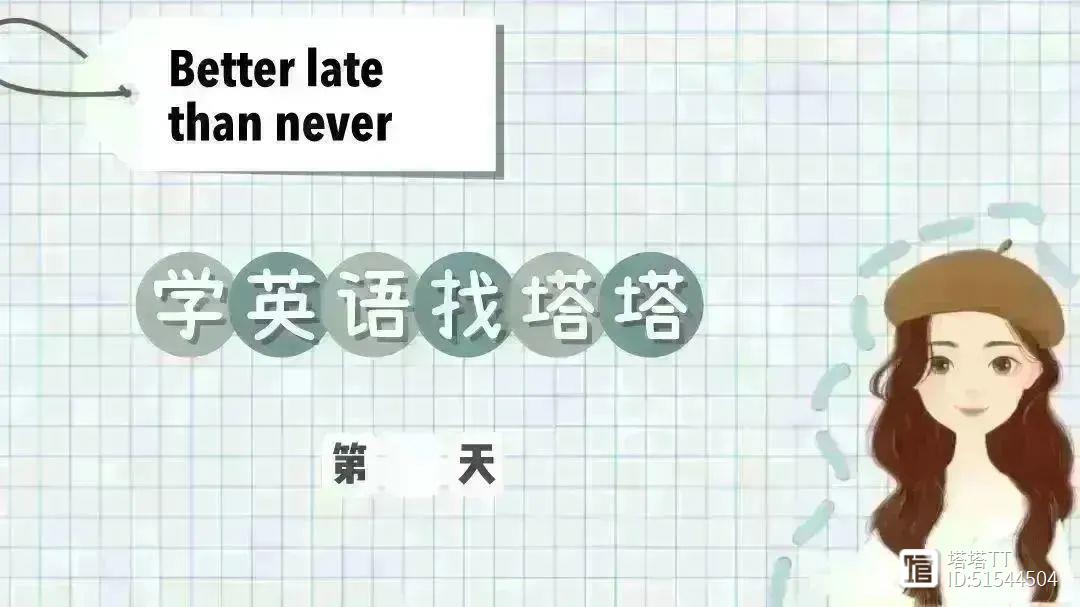第33期:New Guy In Town III 镇上的新邻居III
「晨读音频」


Hey guys! Welcome to my channel. I’m Grace. Good morning!
欢迎来到我的频道~我是Grace老师,早上好呀!
Did you like the story that you have heard in my last class? Now let’s continue to listen to the third part of our suspense series of New Guy in Town.
你喜欢在我上节课中听到的故事吗?现在让我们继续收听这个悬疑系列镇上的新邻居的第三部分。
In this story, you will be surprised at the plot. Oh yes, it seems like we have one more vampire in the story and that makes you feel even more creepy after listening to it.
在这个故事中,你将会对故事情节惊讶万分。哦,是的,似乎在故事中我们又多了一个吸血鬼,在听完后你会感到更加的毛骨悚然。
Okay, now please prick up your ears again and let’s see what happened in this dialogue.
好的, 现在请再次竖起你的耳朵让我们看看在这个对话中发生了什么。
「对话文本」
A: Please make yourselves at home. Let me take your coats. Dinner is almost ready; I hope you brought your appetite.
请随意。我帮你们拿外套。晚餐差不多准备好了。我希望你们有好胃口。
B: Your house is lovely, Armand! Very interesting decor...very...Gothic.
你的房子好有爱,Armand! 这个装饰很有趣,很……哥特式。
C: I think it’s amazing! You have such good taste, Armand! I’m thinking of re-decorating my house; Maybe you could give me a few pointers?
我觉得你的房子很棒!你的品味真好, Armand!我都考虑重新装饰我的房子了;或许你可以给我一点指导。
A: It would be my pleasure. Please have a seat. Can I offer you a glass of wine?
那是我的荣幸。请坐。要我给你们一杯酒吗?
C: We would love some!
非常乐意!
A: Here you are. A very special merlot brought directly from my home country. It has a unique ingredient which gives it a pleasant aroma and superior flavor.
给你。直接从我老家带来的一种特别的梅洛红酒。它有一种特有的成分让红酒有一种诱人的香气和上等的味道。
C: Hmm... It’s delicious!
嗯……很好喝!
B: It’s a bit bitter for my taste... almost tastes like... like...
我喝起来有一点苦……味道就像……像……
C: Ellen! Ellen! Are you okay?
你还好吗?Ellen! Ellen!
A: Did she pass out?
她晕过去了吗?
C: Yeah...
是的……
A: I hope that you didn’t poison her drink too much! You’ll ruin our meal!
我希望你没有在饮料里放太多毒!否则你就毁了这次的晚餐!

「重要发音技巧」
Welcome back. Wow, that was unexpected. It seems like Ellen’s friend could be a vampire as well. I truly want to know what will happen next. Well, I know I have to wait till our next class then more details will come. Okay, now let’s learn some important tips of pronunciations.
欢迎回来。哇哦,真的是出乎意料。似乎Ellen的朋友可能也是一个吸血鬼。我真的很想知道接下来发生了什么。好吧,我知道我得等到我们下一期的课程,然后呢更多的细节才能展现出来。好了,现在让我们学习一些重要的发音技巧。
1. 辅元连读:
一句话中相邻的两个单词,前一个单词以辅音结尾,后一个单词以元音开始,拼读成“辅音 元音”的连读。
你还记得汉语拼音中有些单词xi'an(西安)、ku'ai(酷爱)吗?如果去掉隔音符,就成了xian(先)、kuai(快)了。英文中几乎所有的句子都是从头拼到尾,简单地说:连音就是两个单词相遇能拼读就拼,不能拼读就让过。
连读分析:
I'm going to see a movie later on .
我等一下打算去看电影。
Stand up and stretch for a while.
站起来,伸展一下。
文章中:
Did she pass out?
她晕过去吗?
2. 语调
还记得我前面的课程有讲过英语语调主要有降调、升调和平调三大类,更复杂的语调如降升调或升降调之类无非是升调和降调的某种搭配组合。
美语比英语更接近平民化,它的语调也更趋于自然,较少故意的抑扬顿挫。不同的语调可以表示说话人不同的态度和不同的隐含意思。英语中同一句话采用不同的语调会产生截然不同的语意概念。
1) 降调
用于祈使句:
文章中:
Please have a seat. ↘
请坐。
用于感叹句:
文章中:
You have such good taste, Armand! ↘
你的品味真好, Armand!
2) 升调
用于一般疑问句:
文章中:
Are you okay? ↗
你还好吗?
Did she pass out? ↗
她晕过去了吗?
「核心单词掌握」
1. poison [ˈpɔɪzn] n. 毒药 v. 毒害;在......中下毒
As a noun, it means any substance that harms or kills people or animals if they swallow it or absorb it.
作为名词,它指的是任何一种会伤害或者使人或动物致死的物质,如果人、动物吞下或者吸收它。
As a verb, it means putting something in someone’s food or maybe in their drink makes him/her really sick or even makes him/her die.
作为动词,它指的是在某人的食物或者饮料中放一些东西使他/她生病甚至死亡。
In this dialogue, Armand said, “I hope that you didn’t poison her drink too much. You’ll ruin our meal!” Sounds very evil right? Here the poison is used as verb.
在对话中Armand说:“我希望你没有在饮料里放太多毒!否则你就毁了这次的晚餐!” 听上去无比邪恶是吧。那么在这里啊poison是作动词来使用,表示“在......中下毒”。
衍生:food poisoning 食物中毒
例句1:
Alcoholic drinks act as a poison to a child.
酒精饮料对小孩犹如毒药。
例句2:
Spiritual rubbish can poison the children’s pure minds.
精神垃圾能毒害孩子们的纯洁心灵。
2. pointer [ˈpɔɪntər] n. 提示;建议
It means a piece of advice.
指的是一个建议。
同义词:suggestion / tip
In this dialogue, Ellen’s friend said to Armand, "You have such good taste, Armand. I’m thinking of re-decorating my house; maybe you could give me a few pointers?"
在对话中,Ellen 的朋友对Armand说:“你有很好的品位, Armand.我都考虑重新装饰我的房子了;或许你可以给我一点指导。”
It seems like Ellen’s friend always flattered Armand. Hmm…very suspicious.
似乎Ellen的这个朋友总是在奉承Armand。嗯……很可疑啊。
例句:
Here are some pointers on how to go about the writing task.
关于这项写作任务,以下有几点建议。
3. aroma [əˈroʊmə] n. 芳香,香味
This is an advanced word. It means a pleasant and noticeable smell.
这是一个高级词汇。它是指令人愉快的引人注目的味道。
In this dialogue, Armand said the wine “has a unique ingredient which gives it a pleasant aroma and superior flavor.”
在对话中,Armand说这红酒它“有一种特有的成分让红酒有一种诱人的香气和上等的味道。”
例句1:
This coffee has a great aroma.
这咖啡有很棒的香气。
例句2:
In spring the fields give off an earthy aroma.
春天的原野散发着泥土的芳香。
4. bitter [ˈbɪtər] adj. 苦的
It means having a strong, unpleasant taste; Not sweet.
它是指强烈的让人不愉快的味道;不是甜的。
衍生:
sweet 甜的; sour 酸的;
spicy 辣的; salty 咸的;
In this dialogue, Ellen gave a comment on this wine after drinking it, “It’s a bit bitter for my taste... almost tastes like... like...”
在对话中,Ellen在喝了红酒后给予评价:“我喝起来有一点苦……味道就像……像…...”
例句:
Black coffee leaves a bitter taste in the mouth.
清咖啡在嘴里留下苦味。
「实用口语表达」
1. make yourself at home 请随意 (像在自己家里一样)
It means make yourself comfortable and relaxed.
它指的是让自己舒服放松。
In this dialogue, Armand said to Ellen and her friend when they came into his house, “Please make yourselves at home.”
在对话中,当Ellen和她朋友到Armand家里时,Armand 对他们说:“请随意!”
例句:
Please feel free to look around and make yourself at home.
请随便看,不要客气。
2. Can I offer you a glass of wine? 我能请你喝杯酒吗?
It is a very polite way to receive/entertain your guest as a hospitable host.
这是作为一个热情好客的主人去招待客人的一种非常礼貌的方式。
In this dialogue, Armand asked Ellen and her friend, “Can I offer you a glass of wine?” That looks like Armand is very hospitable and thoughtful.
在本段对话中,Armand 问Ellen和她朋友:“要我给你们一杯酒吗?” 从这里似乎看来Armand很热情好客而且非常周到。
例句:
Can I offer you a ride somewhere?
我能载你一程吗?
3. It would be my pleasure. 这是我的荣幸。
You can also say it briefly “My pleasure.”
你也可以简单地说“我的荣幸。”
In this dialogue, Armand said to Ellen’s friend, “It would be my pleasure.” when Ellen’s friend hoped that Armand could give her a few pointers on re-decorating her house. That sounds very much like a gentleman.
对话中,当Ellen的朋友希望Armand给她一点关于房子重新装修的建议时,Armand 对Ellen的朋友说:“噢这是我的荣幸。” 听上去非常的绅士。
例句:
It would be my pleasure to share the important moments with you.
我很荣幸可以和你一起分享那些重要的时刻。
「今日所学回顾」
1. 发音技巧:
(1) 辅元连读:
一句话中相邻的两个单词,前一个单词以辅音结尾,后一个单词以元音开始,拼读成“辅音 元音”。
Did she pass out?
(2) 语调
a. 降调
用于祈使句:
Please have a seat. ↘
请坐。
用于感叹句:
You have such good taste, Armand! ↘
你的品味真好, Armand!
b. 升调
用于一般疑问句:
Are you okay? ↗
你还好吗?
Did she pass out? ↗
她晕过去了吗?
2. 核心词汇:
poison [ˈpɔɪzn] n. 毒药 v. 毒害;在……下毒
pointer [ˈpɔɪntər] n. 提示;建议
aroma [əˈroʊmə] n. 芳香,香味
bitter [ˈbɪtər] adj. 苦的
3. 口语表达:
make yourself at home
请随意 (像在自己家里一样)
Can I offer you a glass of wine?
我能请你喝杯酒吗?
It would be my pleasure.
这是我的荣幸。
That’s all for today. Do you also want to know what will happen next? Let’s wait and have our future class. You may get more surprise.
我们这期的学习就到这里了。你也想知道接下来发生什么了吗?那让我们等等看我们之后的课程。你可能会有更多的惊讶。
Okay. Thanks for listening. See you next time and have a great day!
好了。感谢收听,下期再见。祝愿大家度过美好的一天!
- 0000
- 0000
- 0000
- 0000
- 0000










